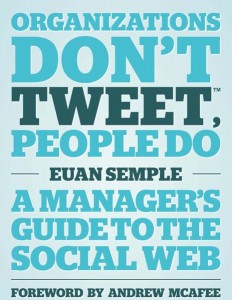Get posts sent to your inbox:
Coding a better government
Click here if you can’t see the video embedded below.

An online notebook
Get posts sent to your inbox:

An online notebook
Click here if you can’t see the video embedded below.
The iPad is great for some things, but hopeless for others. I’ve had one since its launch in 2010 and I use it every day. It has a terrific battery life, springs instantly to life when opened, is robust and portable and, when fitted with a sim card, provides good connectivity on the move. One could, I suppose, try to write a book, edit a movie or build a big spreadsheet model with it – just as one could, in principle, dig the garden with a teaspoon. But you’d be mad to try. The truth about computing is like the truth about steeplechasing: it’s always horses for courses.
As part of an EU-funded bit of work we are working on with Lincolnshire County Council, we’re running an event in Louth next Saturday to demonstrate a whole range of useful and innovative technology that people working in the creative, cultural and heritage sectors would find especially cool.
You can book your place here. The blurb follows:
Kind of Digital, in co-operation with Lincolnshire County Council are holding a one-off digital demonstrator day for the Arts, Creative and Cultural sector in East Lindsey.
This one day event in Louth offering you the opportunity to connect and participate in some great digital technology demonstrations with top technologists, future-forward practioners and thought leaders.
Get hands-on with cutting edge equipment such as 3D scanners and learn how they can benefit your business. We want you to leave this event, inspired, connected and clued into what digital can mean for your business.
The event will also kick start our consultation into the development of Creative Hubs across East Lindsey, leading to the implementation of new digital technologies to grow local infrastructure, networks and great creative business ideas.
This is part of a series of events in the DigitalLincs programme focused on the development of East Lindsey’s creative industries infrastructure.
I’ve been an interested follower of the debate around town centres since the Portas review of last year, not least because I live close by to a small town, and indeed it’s one where a debate is raging about the future and sustainability of the town centre as a place for people to visit, and to buy stuff.
The town in question is Spalding, and right now there is quite a heated debate going on in the local press about two development ideas – one for a regeneration of an in-town-but-exactly-the-town-centre retail area, and the other proposing a big supermarket and retail park on the outskirts of town, but which might generate some section 106 money etc to help with other work.
As you can see from this article on the local newspaper’s website, the topic is one that has inflamed local public opinion and it’s interesting to see people coming together to use an online platform to debate the issues.
I can’t help but feel that the debate here is missing the point. I very much enjoy reading Julian Dobson’s blog, and his group’s submission to the Portas review, The 21st Century Agora (PDF warning) makes some very interesting points that really chime with me.
It reads:
High streets and town centres that are fit for the 21st century need to be multifunctional social centres, not simply competitors for stretched consumers. They must offer irresistible opportunities and experiences that do not exist elsewhere, are rooted in the interests and needs of local people, and will meet the demands of a rapidly changing world.
In other words, the town centre shouldn’t be based just on buying stuff. We need other reasons for people to visit the town.
What sort of things? Julian’s presentation below highlights some of them (apologies if your firewall means you can’t see them):
Town centres ought to be places where people meet, work, consume culture, share ideas, get things done – not just shop!
Whither the internet in all this? It’s a view that the web, and the sheer efficiency of shopping online is one of the things that’s drawing the commercial elements away from the town centre.
The Portas review did mention the use of the web to create an ongoing sense of community and conversation about a town centre. This has been picked up by Sarah Hartley from Talk About Local (she does wear other hats) in a number of posts, including a dead handy list of ways that online communities could help reverse the decline in high streets.
If you’re interested in this stuff, Julian and co have started up an online community, using the Ning platform, and are organising an open space event to discuss the issues. Am hoping to be involved as much as I can.
Picture credit: ambernectar on Flickr
 WordPress, the open source content management system that I use here on this blog, is growing in its utilisation across government. It took root a bit quicker in central government, with the Number 10 site, Defra, Wales Office and the Department of Health, amongst others, using WordPress to deliver some or all of their web content.
WordPress, the open source content management system that I use here on this blog, is growing in its utilisation across government. It took root a bit quicker in central government, with the Number 10 site, Defra, Wales Office and the Department of Health, amongst others, using WordPress to deliver some or all of their web content.
There’s increasing evidence of its use in local government too, mostly for micro-sites rather than being used as the main content management system for a council’s corporate website. Take the ‘digital press office’ sites at Shropshire or Birmingham, for example.
Carl Haggerty recently blogged about two new WordPress sites Devon County Council have published – a newsroom site and a networking site for social care commissioning.
Some councils have the capacity to run their own servers for hosting WordPress, and to keep the software maintained, templates developed and so on – which is great. But what about those authorities that lack the in-house knowledge, or perhaps just the time?
At Kind of Digital, we are currently supporting one district council to make the most of WordPress by supplying a comprehensively supported platform to run multiple WordPress sites for a small yearly subscription fee.
The platform provides:
The organisation will soon start to see considerable savings as microsites hosted in a number of locations are brought together and re-hosted on the multisite platform.
We’re already talking to a couple of other organisations about supporting them with a similar arrangement. As I mentioned above, many organisations can support WordPress perfectly easily themselves – but for those that need a helping hand, we’ve got a nice system ready and waiting to go.
Interested? Drop me line!
For the last couple of months I’ve been playing around with a Lenovo Ideapad S205. It’s a slightly bigger than a netbook machine that runs Windows 7.
I’ve been a pretty dedicated Mac user for the last five years or so, but have been tempted to switch back to Windows for a couple of reasons. One is I’m increasingly uncomfortable with the way Apple is starting to make decisions for me in terms of how I use my computer, and what services and software I should be using. I’m quite happy with this sort of control on my phone or tablet, but it feels wrong on a more traditional computing device – I don’t want an iOS type experience on my laptop.
Secondly, all my customers are in the public sector, and they all use Windows. Even though I can use Microsoft Office on my Mac, there are still loads of problems in opening and editing documents with clients, and it’s a real pain. As well as that, I kind of feel a duty to share the same platform as my customer base.
But, I didn’t want to spend a load of money on a new laptop that I hated, so I decided to get something cheaper that would nonetheless help me make a decision as to whether I would want to return to using a PC rather than a Mac. The machine I went for was the Ideapad S205.
Firstly, it’s cheap – less than £300 from PC World the last time I checked. It has a screen that’s 11″ – so slightly bigger than your average netbook. This extra space also means a larger keyboard than you often get on these small machines, and it’s a lovely thing to type on. Not only that but the screen has a decent resolution on it, so it isn’t filled up with enormous icons that makes it impossible to use.
The other winning thing about the S205 is that it has a pretty grunty 4gb of memory. Often these smaller machines have only around 1gb and that makes running big applications, or several at once, pretty slow going.
There are a couple of downsides to the S205 though and these make it unlikely to become my everyday computer. Firstly, the 320gb hard drive is spacious (not that I really need that for a work laptop) but it’s an old school drive with actual moving bits. Once you have had a machine that just runs off a solid state drive, as I have with the MacBook Air recently, you don’t want to go back to the old, slow way of doing things.
The second issue is one of processing power, and while the memory on the S205 is good, the processor is not exactly rocket-powered. Fine for word processing and browsing and so on, but video calls on Skype slowed things down to a crawl and it really struggled.
A couple of things I noticed about the difference between the Windows and Mac platforms. One is the sheer amount of crud that comes pre-installed on a Windows machine – it took me over an hour to delete all the demos and trials of software I didn’t want from the machine, and removing all the unnecessary icons from the desktop. A real pain!
Secondly, software on Windows just isn’t as easy to use as that on a Mac. I’m still to find, for example, an FTP client on Windows that doesn’t have 3,000 icons on the screen. My Mac equivalent, Transmit, has a beautifully clean interface, which gets out of the way and lets you get with with what you want to do. This is true of lots of apps, and even the Windows interface itself – which to be fair in version 7 is much improved on Vista, etc.
So overall, for most folk who want a cheap but good performing laptop, the S205 is an excellent choice. It’s no replacement for my Mac, but then at less than a quarter of the price, you wouldn’t expect it to be. It also hasn’t quite persuaded me to switch platforms either, just yet.
Now and again I find time to read books about work-related stuff. Here are three I have been tucking into recently.
John Naughton is a hero of mine. His weekly column in The Observer is required reading, and A Brief History of the Future is a wonderful primer on the origins of the internet. His latest book is a treasure trove of information which works just as well for the net newbie as it does the veteran of the interwebs.

Another book, another hero. Now at innovation software firm Spigit, James Gardner was once of the DWP where he implemented the ‘Idea Street’ innovation prediction market. His Little Innovation Book is a marvellously concise introduction to innovating in big organisations, and in Sidestep and Twist he outline how the big, game-changing breakthroughs tend to be adaptations of existing ideas rather than anything genuinely new.

Euan Semple is one of the best bloggers on social software, and following from his work with the BBC a few years ago, he understands the frustrations of trying to implement new ways of working within corporate structures. Organisations Don’t Tweet… is a great introductory work, in which nonetheless I found loads of nuggets of inspiration and learning – as well as a few reminders of things I ought to know but had forgotten. Buy this book for your boss!
Here’s my latest wheeze: an entirely online conference to discuss digital government stuff. It’ll be free too.
Here’s how things will run. There will be two sessions per day, three days a week over 2 weeks – so 12 in total. Right now I am thinking this will be between 7th and 18th May.
Topics under discussion will be stuff like:
The sessions will go live at a certain time, and you’ll be able to watch a video or presentation from the speaker, and then discuss the topic using comments afterwards.
Once the session has gone live, you’ll be able to access and comment whenever you feel like it – although the speaker will only be guaranteed to be around for an hour or two after the session initially goes live (they may well choose to check in now and again after that, though!).
There will also be Twitter chat and so on involved too – in fact pulling together as many online resources as possible.
Obviously, it won’t be perfect – you could spend a lot of money developing a fully interactive online conferencing platform. But this will hopefully work well enough using freely available tools and a bit of WordPress hackery.
Any thoughts?
One bit of work we’ve been doing a fair bit of at Kind of Digital is putting events on the web. One example is the seminar that took place in Leeds yesterday, run by Local Government Yorkshire and Humber.
The idea is that these public service type events are all about getting the message to as many people as possible – which usually is a lot more than those in the room at the time.
Rather than live streaming we take the approach of getting event speakers and organisations, and occasionally delegates, to provide short interviews about the event and what they will be talking about.
We also take photos, and can live blog and tweet, too. The content is uploaded to YouTube and Flickr, etc, and we can create a microsite to host the content too, if required.
Of course, none of this would be possible without the Kind of Digital media maven that is Andrew Beeken, who is a dab hand with a camera and editing video.
It seems to work well, and all our clients so far have been pleased with the cost-effective results. If you have an event coming up that would benefit from this, do drop me a line on dave@kindofdigital.com.
The group blog collecting people’s thoughts is really good reading.
Lloyd hits the nail on the head here:
We do it this way because it works and because we’ve seen the alternative really fail big time again and again. Because it’s unusual for most of us and outside of our everyday experience, it’s tempting to make two mistakes. One is to think that because it’s the first time we’re doing it, that this is the first time it’s being done – nope – it’s a well-established technique that is probably used somewhere in the world every day to help large groups of people organise their own experience. Secondly it’s tempting to look back at bits of the day that didn’t work for us and think it didn’t work because we got the grid work wrong and therefore we should do it differently next time. This mostly comes up as a suggestion that “just a little bit more structure or pre-planning” is introduced. While I’m sure that we do get things wrong sometimes and there are ways that we can make the process serve us better, I don’t think that it’s a reason to introduce pre-planning. All that pre-planning does, in my experience is make people who are feeling anxious and don’t trust the process think that they will feel better. The answer is to trust the accumulated experience that the process works well – this will give you much more relief from anxiety and will truly make you feel better.